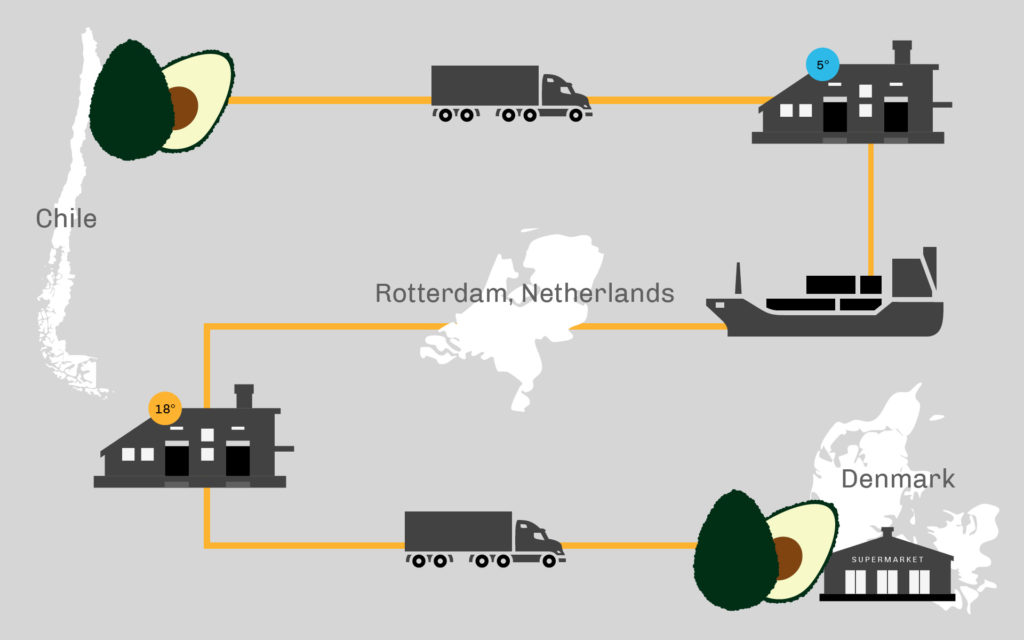Avocados travel a long way before you give them that squeeze in the supermarket to test their ripeness. The Chilean avocados that we eat in Denmark have often been picked months earlier, and they usually take a detour to Holland first.

The harvest of Chilean avocados begins in August. This means that Chilean avocados turn up in Danish supermarkets between September and April. Most come from central Chile, near the cities of Santiago and Valparaíso. On plantations situated close to riverbeds, the avocados grow on trees four to five metres high. They are harvested by hand with ladders, or with a tool called a “gancho,” which is like a bag on a long handle with a little guillotine attached: it saws through the stem until the avocado falls into the bag.
From the plantations, the avocados are transported by truck to warehouses where they are weighed, washed and sorted by size. To prepare them for the long journey to Europe, they are cooled to approximately 4-8°C in cooling chambers; this prevents them from ripening too early. Often, the warehouses are owned by export firms that negotiate prices with European importers before the avocados leave the ports of Valparaíso or San Antonio. During the sea crossing, which takes about three weeks, the fruit is stored in cooling containers in a controlled atmosphere in which the level of oxygen is reduced and the level of carbon dioxide increased. This helps it stay fresh longer.
Most Chilean avocados that are sold in Denmark arrive first in Rotterdam, Holland, where they undergo an artificial ripening process. The avocados are placed in so-called ripening chambers, where they are kept for 7-14 days at a temperature between 16-20°C. After the ripening process, the avocados are ready to be transported by truck to Denmark, where they are sold as “ready to eat” avocados in supermarkets.
Danish supermarkets buy Chilean avocados in different ways. Dansk Supermarked (which owns Netto, Føtex and Bilka), Rema 1000 and Aldi have contracts with European importers, mainly from Holland. Other chains sometimes buy avocados directly from Chilean exporters. Coop (which owns Fakta, Irma, SuperBrugsen and Kvickly), for example, used to buy avocados directly from two Chilean exporters, and Lidl says that it uses both wholesalers and buys directly from producers in Chile.
The time it takes to transport avocados from Chile and put them through the ripening process in Europe means that avocados you buy in the supermarket may have been in transit for up to two months since they were picked on the avocado plantation in Chile.